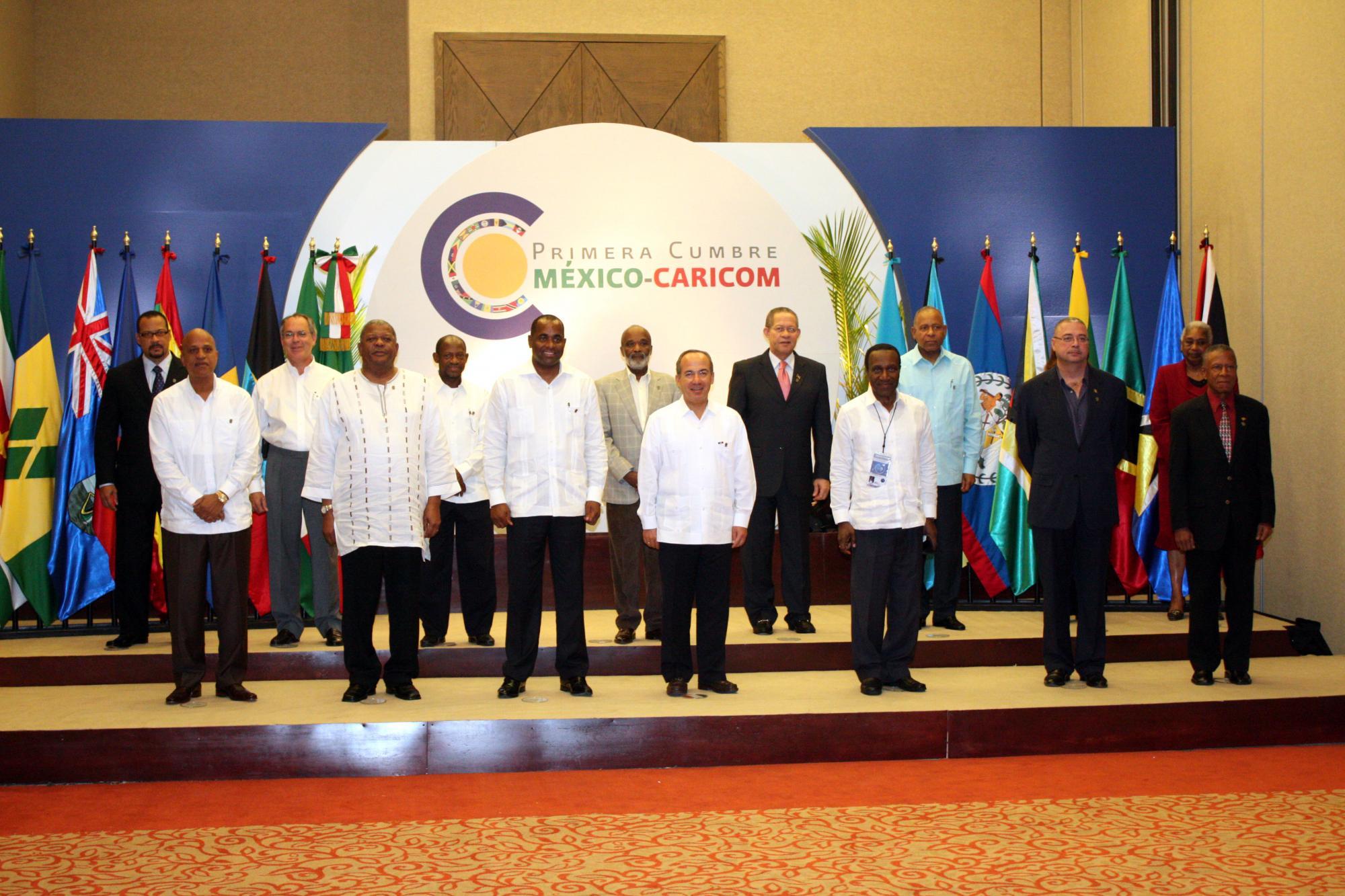As Latin American and Caribbean leaders meet in Mexico to discuss the creation of a new regional alliance that excludes the United States and Canada, there is an opportunity for China to seek more cooperation in the region, experts said.
The Group of Rio meeting that runs from Saturday to Tuesday in Playa del Carmen, a resort city on Mexico's Caribbean coast could see the creation of a new larger organization that adds Caribbean island nations to the existing Group of Rio 24-nation membership, according to Xinhua News Agency.
The Mexican-led initiative will exclude both the US and Canada, and observers believe it could eventually rival the 35-member Organization of American States (OAS), which includes the US and Canada, and which has been the principal forum for hemispheric issues during the past half century, the Financial Times reported.

Latin American and Caribbean leaders pose during the Group of Rio meeting on Feb 21. The first Group of Rio meeting runs from Feb 20 to 23 in Playa del Carmen. [Xinhua]
Salvador Beltrn del Ro, Mexico's under-secretary for Latin America and the Caribbean, told the Financial Times that Latin America's leading powers have agreed on the need for such an organization. "The need to take this step is a sign of the region's maturity. We need to give ourselves that space."
However, Jorge Castaneda, Mexico's former foreign minister, told the Financial Times that the meeting could end up sending an unconstructive message from the region to Obama and that might mean "you are going to have people in the US Congress saying, 'OK, Latin America can have its organization so let's scupper the OAS'."
"The willingness of Latin American countries to challenge US positions indicates a slowly changing balance of power in the hemisphere," said Tom Loudon, a writer for a US news organization Truthout.
However, Sun Hongbo, a researcher at the Institute of Latin American Studies at the Chinese Academy of Social Sciences, said the move can also be seen as a diplomatic gesture because Latin America actually wants more attention from the US, which, since the global financial crisis, has been unable to maintain the amount of economic benefits it provided.
But Latin America is also seeking diplomatic autonomy to develop relations with other major countries, Sun said. "The creation of such an organization could be a platform for more effective communication between China and Latin America. It would also be easier for them to ask for bigger bids from China with a more united voice."
Trade between China and Latin America reached $111.461 billion in the first three quarters of 2008, with China's direct non-financial investment in the region involving trade, manufacturing, gas and oil exploration amounting to $960 million at the end of June in 2008.
Although the huge asymmetry between the large amount of trade between China and Latin America and the low level of direct Chinese financial could impede further cooperation between the two, said Sun.
Osvaldo Rosales, from the UN's Economic Commission for Latin America and the Caribbean (ECLAC), speaking to the BBC said he blamed Latin American governments for the lack of properly evaluated investment projects for China to invest in.
Sun said China has been considering increasing investment in the Latin America region and exploring diversified channels other than the local governments to launch the investments.
However, despite the increasing common interests and the need for integration among the Latin American countries since the financial crisis, there are doubts about the realization of such an organization and its effectiveness in operation.
The emergence of Hugo Chvez, Venezuela's radical leftwing president, has helped create a clear political split in the region, with the likes of Ecuador, Bolivia and Nicaragua on the left and Colombia, Peru and Mexico on the right, with, until now, Brazil often bridging the deep fissure dividing the two.
The president of the US think tank Inter-American Dialogue told the Financial Times that serious questions about unity and cohesiveness are likely to hang over the new organization, as in the past there hasn't been much success resulting from Latin America's integration efforts, "I can't imagine that this is going to be terribly different."





